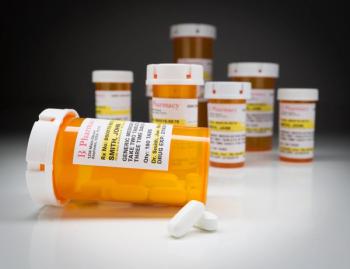
Our Top 8 Health-Tech Research Stories of 2018
Groundbreaking advances and eye-opening findings in healthcare and tech could reshape the industry and the world.
Health tech research is among the most interesting subjects we cover. Whether investigators are shining a light on healthcare’s cybersecurity problem or innovators are developing new wearable technology, the academic endeavors in health tech repeatedly grip our audience — and our writers. And this trend certainly remained true over the past year.
Nearly every day, our editorial team scours health-tech journals and other publications for the latest and greatest developments in the sector. While our chief goal is to deliver insights over hype, it’s critical that we explore the health-tech innovations that are coming down the pike. What’s more, researchers have shown time and again what’s working — and what’s failing — in healthcare.
>> LISTEN:
So, in honor of a year of innovation and insights, we dug into our analytics dashboard and found the top eight health-tech research stories that we wrote in 2018. Here they are, listed in descending order, for your benefit.
8.
Electronic health records (EHRs) have been shown to improve healthcare by some measures, but study after study suggests the technology is hurting physicians. So, how can health systems balance tech that drives outcomes and physician well-being? The answer might be something not-so-high-tech: scribes. In this study, physicians saw reduced EHR time and increased productivity and satisfaction thanks to medical scribes. But the authors cautioned that scribes are most likely a temporary solution to a critical problem.
7.
The cost of physician burnout is high. In a systematic review and meta-analysis, JAMA Internal Medicine illustrated the precise effects of this problem, and they go far beyond doctors. Physician burnout is more likely to result in safety incidents, suboptimal care and more. Hint: There’s an actual price to be paid by health systems.
6.
When it comes to cybersecurity, nearly every healthcare organization fears the dreaded hacker. But perhaps health systems should look inside their organizations for the greatest threats. Employees and bad policies do more damage than many healthcare leaders realize. And more than half of all data breaches over a period of seven years occurred because of internal factors, according to researchers from Michigan State and Johns Hopkins universities.
5.
Artificial intelligence (AI) isn’t a magic bullet — and it takes a lot of data and expertise to get these algorithms working properly. Consider this tool, which can predict hypotension during surgery as soon as 15 minutes before low blood pressure strikes. Researchers built the algorithm on roughly 550,000 minutes of surgical arterial waveform recordings from 1,334 patients’ health records. Sure, it was a heavy lift, but the results could be well worth it.
4.
Although far from being deployed in any official capacity, machine learning and advanced analytics showed promise in this novel study of algorithms and Medicare Part B data. If AI can indeed be used to detect Medicare fraud on a large scale, it could spur great monetary savings, reducing theft and the human labor required to spot questionable claims.
3.
In a much-discussed study, University of Pennsylvania researchers examined what effect, if any, free rideshare services might have on getting low-income patients to the doctor. Lyft, it turns out, didn’t move the needle on the number of missed medical appointments, at least in this study. Just 85 of 288 patients who answered a phone call ultimately used the service. But why?
2.
Yikes. There’s not much more that we can say about this bad news without reprinting the article, but a major point is that the number of healthcare data breaches is rising nearly every year. For the rest of the disheartening statistics (and there are many), just read the story. After all, you can’t fight what you don’t understand.
1.
Among virtual reality’s most promising applications appears to be behavioral health. VR can bring patients to new worlds, helping them confront their most paralyzing anxieties and fears. It can help them reckon with their past, their future, themselves. And the technology is already doing this. This roundup focuses specifically on how VR can treat patients with schizophrenia, and the findings are anything but expected.
Get the best insights in healthcare analytics
Related






























